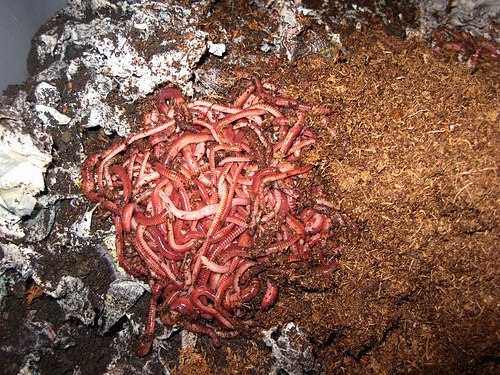Using vermicompost and vermitea increases rice yield and generates higher income, according to Magsasaka Siyentista (MS) Rene Sebastian in a recent technology field day and forum held in this town.
MS Sebastian attributed these positive results to his application of science and technology (S&T)-based interventions in his farm in Barangay Sto. Cristo.

Sebastian also reported that his farm became a source of quality seeds. His clients include the Department of Agriculture and farmers from adjacent barangays.
The S&T interventions
According to Sebastian, he produces his own vermicompost and vermitea. He also does not burn rice straw, instead he transforms it into organic matter by adding in chicken manure and some microorganisms.
As to the other S&T interventions, he plants the recommended NSIC-Rc 18 rice varieties; applies 25 bags of vermicompost in the last harrowing; and uses inorganic fertilizer, 5?7 days before panicle initiation. He also uses vermitea as foliar fertilizer. Further, he applies pesticide at 40 liters/ha within a two-week interval, from transplanting time to panicle initiation.
For the first crop cycle, he incurred an additional cost of P4,500 for the 14.5 bags of vermicompost; however, an additional amount of P3,000/0.5 ha too was gained from the S&T intervention compared with his traditional farming practice. He expects higher income in the next cropping cycle as organic matter builds up.
On the same occasion, Dr. Cielito A. Beltran, a technical expert from the Tarlac College of Agriculture (TCA), further discussed the science behind the practice of MS Sebastian.
He presented the procedure of making vermicompost and vermitea. Vermicompost is the material that worms consume that is converted into cast with large quantities of nutritional organic compounds. On the other hand, vermitea is formulated from worm castings, which are soaked in water for 24 hours and oxygenated.
Dr. Beltran pointed out that the use of vermicompost and vermitea is a biological method of fertilization and pest control that can increase rice productivity up to 28%. At the same time, these organic products can reduce the cost of production by more than 50% through continuous application.
In closing, he emphasized the readiness of TCA in providing training to all interested farmers. However, because of its limited finances, TCA requires farmers to provide counterpart funds.
The conduct of technology field day and forum was a collaborative undertaking of the Municipal Agriculture Office of Concepcion, Tarlac, TCA, Central Luzon Agriculture and Resources Research and Development Consortium, and PCARRD.
